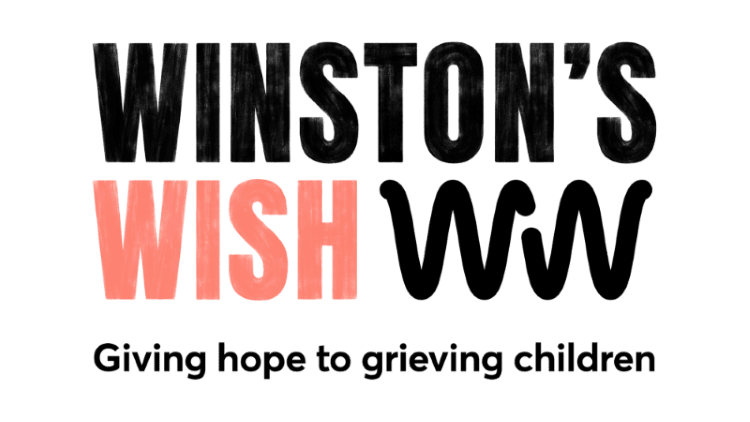Telling a child or young person that someone important to them has died is difficult enough. Explaining a death involving drug or alcohol use, whether from substance misuse, addiction or accidental overdose, can be challenging. Often, our instinct is to protect children by not telling them, but we know from our experience it can be helpful to tell a child or young person how the person died, in a way that they will understand. Our team at Winston’s Wish offer guidance on how to explain death by drugs or alcohol to a child or young person, including:
- Use age-appropriate language they can understand
- Make sure they understand what death is first
- Give a clear, honest explanation of how that person died if that feels appropriate
- Build up information and let them ask questions
- Talk about their feelings and offer reassurance
Use age-appropriate language they can understand
The depth and complexity of the conversation should match a child’s developmental level. Younger children need simpler explanations and language, while teenagers can understand more complex information. It’s important to use terminology they are familiar with and clear language like ‘death’ and ‘died’. Although it can feel uncomfortable to use these words, terms like ‘lost’, ‘passed away’ or ‘gone to sleep’ can be confusing, especially for younger children who may take things literally. If they are lost, then why don’t we go and find them? If they have ‘gone to sleep’, will I disappear if I go to sleep?
Start with a simple explanation of what death is
Very young children may not know what it means to be alive or dead, and often won’t fully understand the permanence of death until around the age of nine. Children and young people need to hear factual, clear language about the concept of death. It can be helpful to say something like:
“[Name of person] has died and when someone dies this mean they are not alive anymore. Their heart has stopped beating and their body has stopped working. They have died and this very sadly means we won’t see them again.”
Talking about the natural life cycle of every living thing can be helpful for young children. You could find both alive and dead bugs and ask them to tell you the difference between them. This will give them a good visual representation of what death means. Get full step-by-step instructions on using insects to explain death here.
Continued below…
Give a clear explanation of how they died
You may think you are protecting a child or young person by not telling them that their important person died because of drugs or alcohol. However, children can feel confused if they have questions about the person’s death and don’t have the answers. They may also look for answers in another way – maybe online, rumours or overhearing conversations – and therefore have half an understanding about how the person died. So, it may be helpful to hear the truth about how the person died in a way they understand from someone they trust.
When explaining how someone died to a child, take into account their age, level of understanding and how ready they are for this information. If they are asking you questions about how they died, then it might be a sign that they are ready for the answer.
Explaining a death due to drugs or alcohol addiction
Naming it as an addition and giving an explanation about what an addiction is can be the first step. For example:
“An addiction is when you can’t stop yourself from doing something even though you might really want to. It is an illness in your brain.”
You can then add in further context, for example:
“They [use their name] died from an illness in their brain/mind called alcoholism.” Or “They died from a drug overdose because of their addiction.”
“They were very unwell in their brain. This meant even though they really wanted to stop drinking alcohol/taking drugs they couldn’t because they were addicted to it. Taking too much alcohol or drugs can seriously affect your body and unfortunately for them, their heart stopped beating their body stopped working, and they died.”
Explaining a death by accidental overdose
“On the day they died, they did something very dangerous that you should never do. We think they accidentally took too much of a medicine/drug [name it if you feel it’s appropriate]. Taking too much of a medicine/drug can seriously affect your body. Unfortunately for them, because of taking to much of a medicine/drug, their heart stop beating, their body stopped working and they died.”
Explaining a death by intentional overdose
Explaining that someone took their own life by deliberately taking an overdose of a drug or medicine can feel impossible. You could start with:
“They had a poorly mind. They were unwell in their mind with an illness called depression. Their illness made their thinking not work properly and on the day they died, their thinking told them they shouldn’t be alive anymore. They did something very dangerous that you should never do. They took too much of a medicine/drug [name it if you feel it’s appropriate] because they knew this would make their heart stop beating, their body stop working, and they would die. They took too much medicine/drug to make themselves die.”
Read our guidance on explaining suicide to a child for more ideas.
Continued below…
Building up information
You may need to give some information about what drugs are. You could explain that drugs, a bit like medicines, are something that change the way a person’s body works. There are medicines which can be found in shops, some medicines are given to you by a doctor, and there are some drugs that are illegal (illegal means that you are not allowed to take them) and they can affect the way people think or act.
Discuss responsible choices
Emphasise the importance of making choices that keep our bodies and minds healthy. For teenagers and young adults, you could have a discussion about why it’s important not to take any substances with the supervision of a trained adult or doctor.
Talk about their feelings
Death often brings up intense emotions. Assure them that it’s okay to feel upset, confused, or scared and that it’s important to talk about these feelings. If they knew the person who died, allow them to grieve and express their emotions in whatever way is best for them. Children can often feel that they were responsible for an important person’s death. So, reassure them that they didn’t cause them to take drugs or drink alcohol.
Offer reassurance
Make sure to tell them that most people do not die from using alcohol or drugs and that there are many ways people work to stay safe and healthy. Reinforce that you and other adults they trust are there to keep them safe.
Let them ask questions
Let them know you are here for them when they want to talk. Encourage them to ask any questions they may have and to come to you if they hear or see anything about drugs or alcohol that worries them.
Remember, every child is unique and their understanding and ability to process their emotions will vary. These explanations are aimed at making a difficult topic more understandable for children and young people. Be patient and provide reassurance and support throughout the conversation.
Getting professional grief support from Winston’s Wish
Winston’s Wish is a charity that helps children, teenagers and young adults (up to the age of 25) find their feet when their worlds are turned upside down by grief. Through information, on-demand services, bereavement support and counselling, we support young people to understand their feelings, process their grief and find ways to move forward with hope for a brighter future. All of our support is available online, so we can support children and young people across the UK no matter where they live. We also help the adults who are caring for young grieving people including parents, school staff and healthcare professionals.
If you are supporting a child or young person who is struggling with their grief, please call our Freephone Helpline team on 08088 020 021 (8am -8pm, weekdays), email ask@winstonswish.org or use our live chat (8am-8pm, weekdays). We are here to help and can provide advice, support, and resources.

You may also like

Information and advice
Advice and resources to support children and young people, including on bereavement by suicide, homicide and serious illness.

Activities for bereaved children
Download our free activities to help grieving children express their feelings and remember someone who has died.


